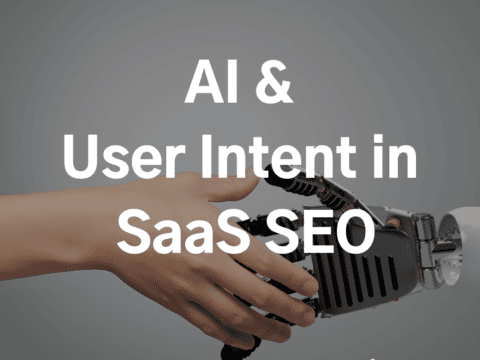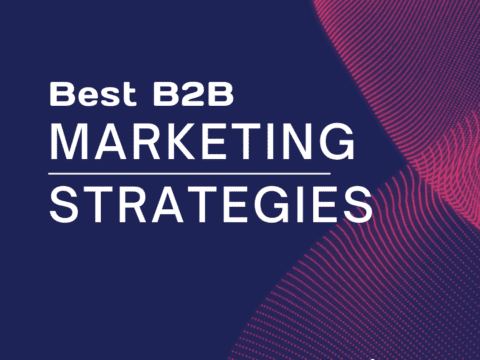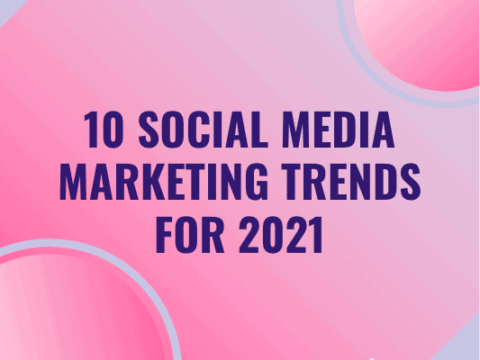When Machine Learning and Artificial Intelligence came to life decades ago, technologists aspired to create something that could work like human intelligence. However, in the wake of technologies like analytics and big data, ML and AI have outmatched human ability. These technologies help businesses scale new heights, and marketers are now joining millions of entrepreneurs investing in AI and ML to handle different processes.
Machine learning and artificial intelligence save marketers and business owners a lot of time and stress, allowing them to focus on branding, content creation, and creating strong partnerships. This article covers how AI and machine learning impact digital marketing, how those technologies are used by modern marketers, and how you can prepare your organization for AI and machine learning adoption.
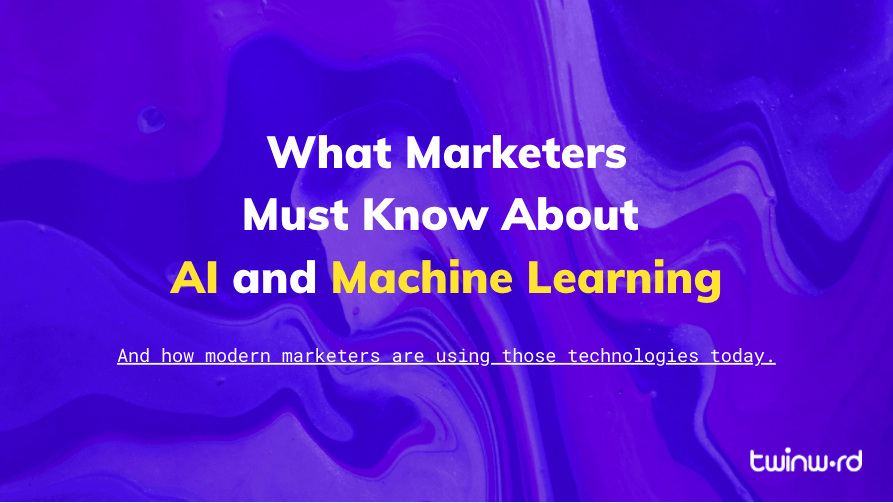
What Do AI and Machine Learning Mean For Marketers?
With marketers trying to capitalize on the online scene, AI and machine learning are (sadly) proving to be easier to manage than freelancers or employees. Thanks to AI-generated video tools, chatbots, social media schedulers, and digital advertising tools, you can replace a significant part of your marketing team with AI tools.
Here are interesting facts about AI and ML that every marker will want to know:
- 61% of marketers consider artificial intelligence as a crucial part of their data strategy
- Over 80% of tech experts and business leaders believe AI boosts productivity, though about 70% are still struggling to scale the technology in their businesses
- The current Ai technology can increase business productivity by almost 40%
- 49% of consumers are likely to shop frequently when artificial intelligence is present, while 34% is willing to spend more money
- Marketers waster over five and a half hours trying to improve their data processes and still fail
- By 2035, AI will increase profitability by 38% and generate $14 trillion in revenue
- 66% of marketers agree that machine learning and automation will allow their team to focus on other strategic marketing activities
How Do AI and Machine Learning help business?
Some tremendous benefits of using ML and AI-based marketing solutions include:
- Increased sales qualified leads
- Improved marketing qualified leads
- Increased precision in marketing campaigns
- Improved customer satisfaction and user experience
- Reduced marketing cost
- Improved personalized marketing
- Effective business opportunities exploitation
How Are Marketers Using AI And Machine Learning?
Now that we’ve seen the impact and benefits of artificial intelligence and machine learning in the marketing scene, you might be wondering how to incorporate them into your business.
Here are some examples of artificial intelligence and machine learning used for marketing today:
-
Social Listening
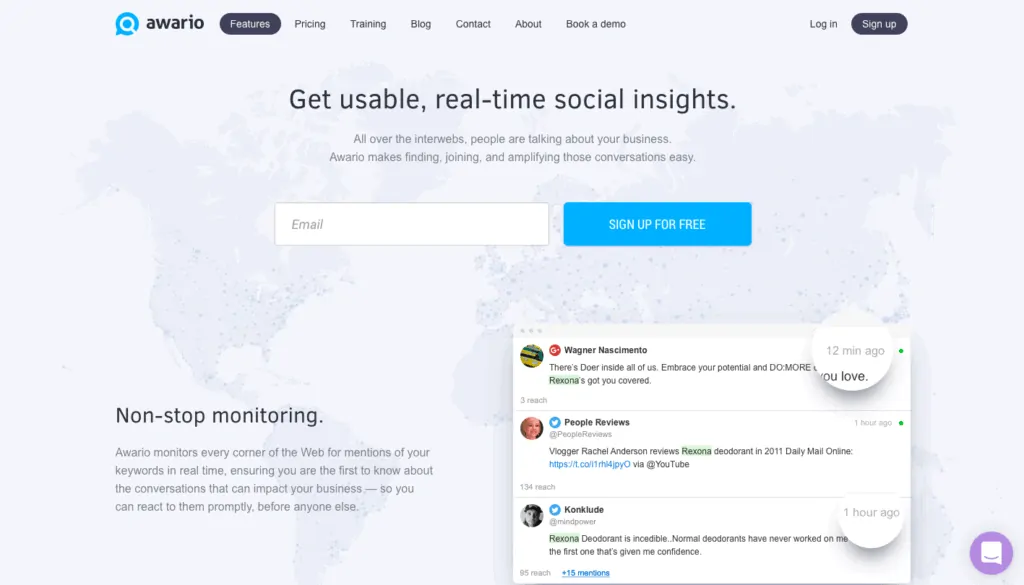
Awario Social Listening Tool
Ever felt like someone was listening to what you tell people in private? Well, that’s because they are. In the modern marketing world, marketers listen to what their prospects say on their social media channels, ensuring that they note the language they use related to certain keywords, phrases, and brands.
Listening to what customers are saying about a particular topic helps them understand each customer better and the type of product/ service they’re interested in. That’s essential in digital marketing, as the customers want to be seen, heard, known, and understood. Social media listening allows marketers to give their customers a sense of being known without spending thousands of hours getting to know them personally.
-
Competitor Analysis
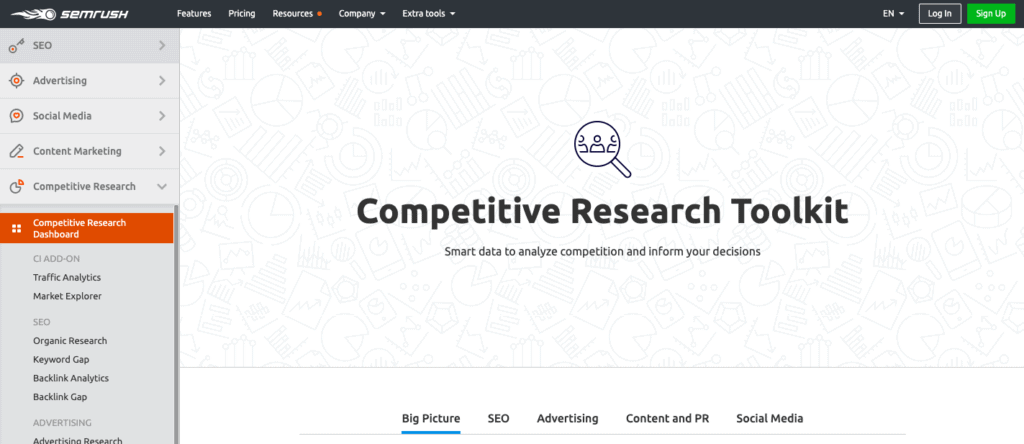
SEMRush Competitor Analysis Tool
The same tools that marketers are leveraging to know their customers are also proving useful in getting to know the competition. By tracking the competitors’ conversations centered on their customers’ experiences, they can better understand the pain points that can help their businesses lure in new customers.
In digital transformation, data is the key to gaining a competitive advantage. AI and machine learning help marketers process heaps of data for this purpose.
-
Content Creation
While artificial intelligence may not replace writers completely, AI bots are now smart enough to create the kind of content that gives customers peace of mind, whether it’s a product inquiry or auto-response. These technologies are helping marketers save thousands of working hours that are better dedicated to more meaningful efforts.
-
Content Optimization
By leveraging machine learning and AI, marketers can tailor different content types for their prospects, ranging from photos to videos. Artificial intelligence helps determine the specific words and phrases that customers respond to best and use it to tailor your messages’ tone.
-
Content Development
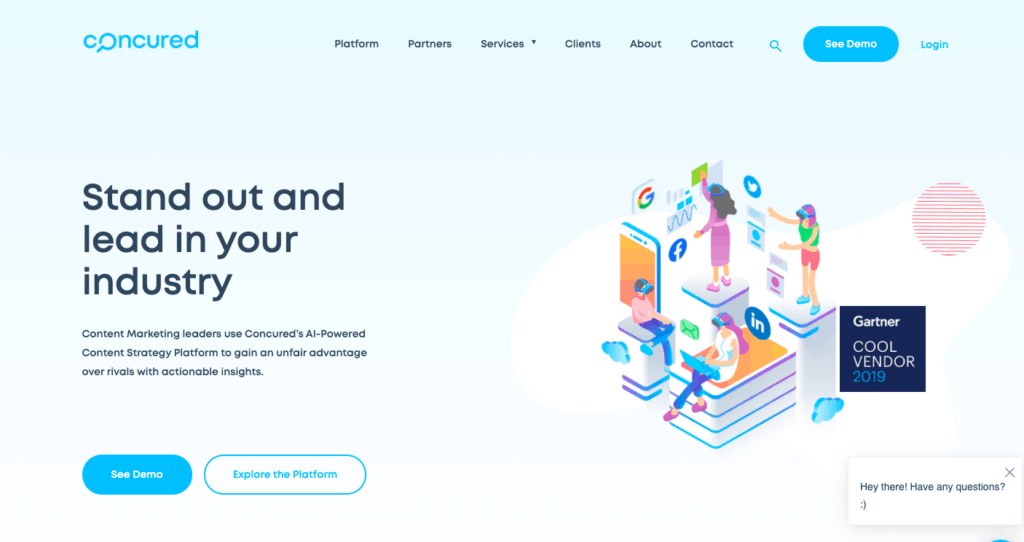
Concured Content Development Tool
Modern marketers want to know more than their emails open-rate, as many factors are impacting that. Using machine learning and AI, marketers can easily control these factors while allowing them to know the kind of content their customers enjoy seeing through different channels like text, social, email, etc.
Learning about these factors is essential as there’s no one-solution-fits-all when it comes to content marketing. That’s because all your customers are individuals with personal tastes and different preferences about when they like to communicate, check out new stuff, and shop. As such, modern marketers must learn their preferences and tweak their content marketing campaigns accordingly.
-
Promotion Optimization
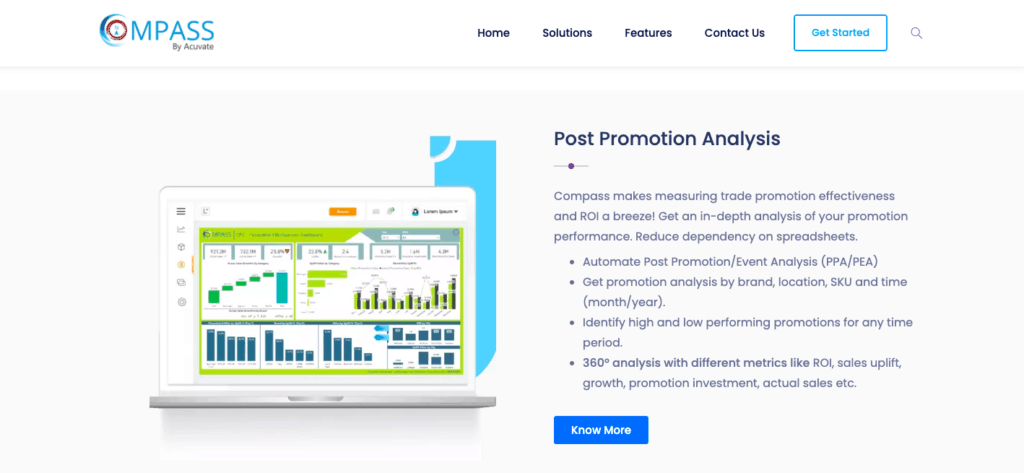
Compass Promotion Optimization Tool
Before the rise of the internet and other technologies, marketers used to buy ad space on the local newspaper and city billboards depending on the number of people likely to read it. Today, big data and machine learning offer so many variables to help marketers run successful ad campaigns.
These technologies can help marketers understand social media posts worth boosting based on the audience, content, timing, etc. As such, machine learning and AI help marketers make money with effective marketing channels while assisting them in saving money by avoiding ad campaigns that might not work for the business.
Marketers today are using machine learning and AI to get into their customers’ minds to pull out and process information that can help them understand them in ways you never knew were possible before. Some people may view this as an invasion of a person’s privacy, though those who enjoy the sense of personalization might welcome it.
How To Prepare Your Organization For AI And Machine Learning?
Here are three essential tips that entrepreneurs and marketers need to consider when preparing their organization for AI and machine learning:
1. Define Your Goals Upfront
Much like the human brain, machines and software programs work best when they’re goal-driven. Your goal or expected output works as the program’s framework, helping data scientists and programmers to build models using the right data. As such, the goal needs to be quantifiable and measurable to determine a specific model’s success.
2. Arm With Enough Data
A golden rule for marketers to remember is that machine learning and AI algorithms are only as good as the data they’re based on. For this reason, it’s essential to have the right data to solve the problem at hand successfully. That means having more than a few data lines, as machines need thousands of data points to learn.
Your data will also need to be cleaned, formatted, and organized for the algorithms. You’ll also need two sets of data, one for training your model and the other for assessing its performance.
3. Assemble A Team With The Right Mindset
While the best marketing team can identify the best use for AI and machine learning, data analysts and scientists are critical in the implementation stage. As such, assembling a diverse team is essential to any AI/ machine learning program’s success. However, you need a team with the right mindset to get the most from AI and machine learning as you market your business. That calls for a cultural shift that rewards and prioritizes testing, measurement, and experimentation throughout the organization.
The Future Of AI And Machine Learning In Digital Marketing
Artificial intelligence and machine learning have proven to be great technologies that significantly impact today’s marketing industry. Using these technologies in your digital marketing strategy will help your brand deliver an improved customer experience and enable you to market your business more effectively.
These technologies will also change how you build websites and communication channels to interact with customers. That’s because personalization is becoming a core marketing aspect, with AI and machine learning being the primary facilitators. As such, the sooner that entrepreneurs and marketers adopt these technologies, the faster they’ll be prepared and adapt to the dynamic of digital marketing in the future.
Related posts you might be interested in:
- All You Need To Know About AI Marketing (+Infographic)
- 11 Easy Ways To Reach Your Content Marketing Goals

